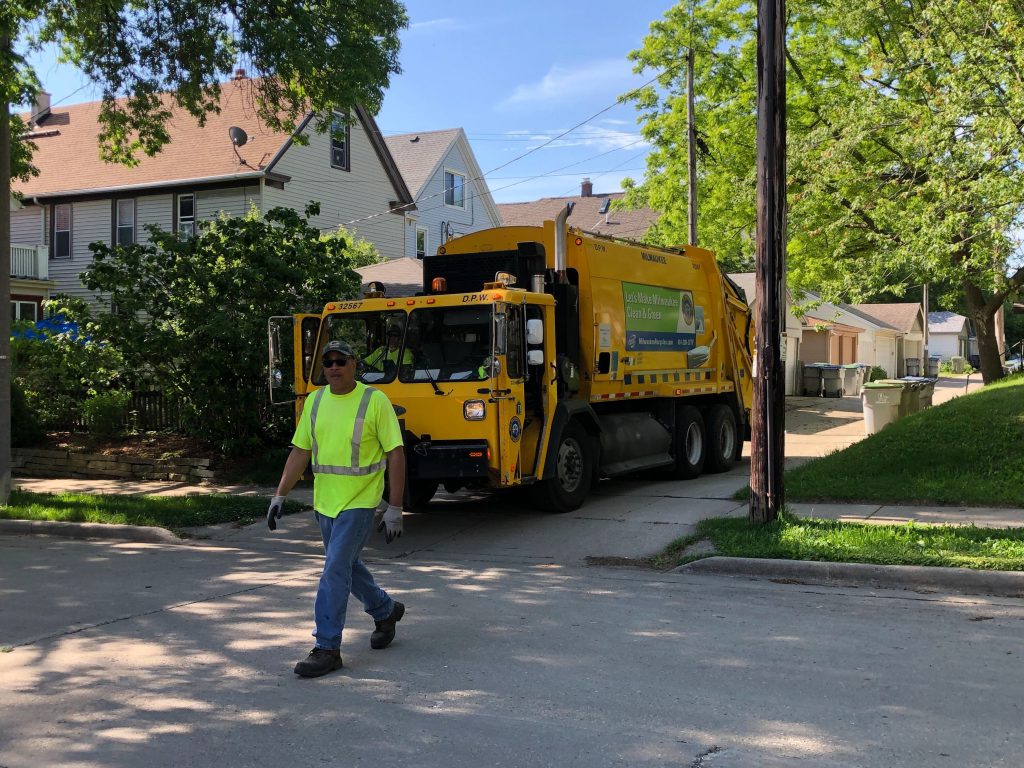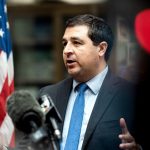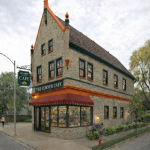Feds Won’t Cover $1.6 Million Hazard Pay
Changing guidance leaves Milwaukee holding the bag for COVID-19-related bonus.
The plan seemed simple. The City of Milwaukee received approximately $105 million in COVID-19 relief funding from the federal government’s CARES Act and would use a portion of it to provide a $3.13 per hour hazard pay bonus to public-facing city workers. Employees, ranging from sanitation workers to health department nurses, would receive the bonus until July 27th.
Mayor Tom Barrett issued an emergency proclamation on May 22nd enacting the bonus and the Common Council affirmed the proclamation on May 27th.
Then, on May 28th, the U.S. Department of the Treasury issued new guidance that most of the general city employees weren’t eligible and their bonuses couldn’t be charged to the grant. Employees of the Milwaukee Health Department are still eligible for the grant, but not most general city employees. Local governments were already prohibited from using the grant to make up for lost revenues.
“As you can imagine we panicked and we started to look at what options we have,” said Department of Employee Relations director Maria Monteagudo the morning of July 1st, the first time the Common Council was briefed on the matter.
“How much money are we talking about that we have already paid to folks that don’t qualify for reimbursements?” asked Alderman Scott Spiker.
“We could be on the hook for $1.6 million,” said city budget director Dennis Yaccarino. That’s after the city moved to charge the federal grant for bonuses paid from May 22nd through the 28th — before the federal government ruling disallowing reimbursement.
“The City Attorney’s Office advised that the guidance was unclear whether the employee’s duties need to be related to COVID-19, or if the employee’s duties/work need to be related to COVID-19. We were also advised that, based on the ambiguity in the guidance, there was a risk with charging hazard pay to the Coronavirus Relief Funds for employees whose duties are not substantially dedicated to mitigating the effects of COVID-19, but there was a reasonable argument that such charges could be made. Given this and the fact that a number of other municipalities had enacted or were in the process of enacting similar hazard pay provisions for essential infrastructure workers facing risk of exposure, we proceeded,” she wrote.
“On May 28th I think the federal government realized that many municipalities were implementing hazard pay programs,” she said.
Monteagudo said Barrett would issue a new proclamation Wednesday. “It ties the eligibility for hazard pay to the actual language of the guidance,” she said.
But if the city learned of the change on May 28th, why has it waited until July 1st to act? None of the committee members asked.
“The city wanted to understand the guidance first and find out if there was a feasible way to have departments absorb the cost based on how the grant would cover some salary and other expenditures that had been funded via the city budget. Given the sensitivity of the issue, instead of issuing another proclamation, the administration wanted to inform the council via a communication file,” said Monteagudo in response to a question from Urban Milwaukee. Her letter said if a new proclamation isn’t issued, the bonus would cost the Department of Public Works alone $1.2 million.
The committee did unanimously approve two other hazard pay plans that are allowed under the federal guidance. In separately negotiated agreements, approximately 650 members of the Milwaukee Fire Department and 1,100 members of the Milwaukee Police Department will receive a $250 bonus per two-week pay period through September 5th. The bonus does not factor into pension calculations.
“This payment was calculated based on hazard pay that was originally extended to general city employees,” said city labor negotiator Nicole Fleck. The public safety hazard pay bonuses are expected to cost $3.2 million.
“It is our opinion that all of this money would be chargeable to the grant,” said assistant city attorney Ben Roovers of the public safety bonuses.
City Budget Update
How is COVID-19 impacting the city budget? In a separate agenda item, Yaccarino said it is possible that the city breaks even at the end of 2020.
But revenue is expected to be down $20 million to $30 million. Those reductions include the loss of multiple months of parking revenue after meters and other fees were suspended. City dump drop-off centers also had their fees eliminated because of the pandemic.
Next year might be a bigger challenge. Yaccarino said budget requests show a structural deficit of approximately $60 million, but he expects that to be cut in half before any cuts must be made. The budget director said he was also working with the City Comptroller for an update on the city’s borrowing.
Committee chair Ald. Michael Murphy asked if the administration was contemplating furloughs or other changes for employees? Yaccarino said no options had been ruled out.
If you think stories like this are important, become a member of Urban Milwaukee and help support real, independent journalism. Plus you get some cool added benefits.
Political Contributions Tracker
Displaying political contributions between people mentioned in this story. Learn more.
City Hall
-
Council Blocked In Fight To Oversee Top City Officials
 Dec 16th, 2025 by Jeramey Jannene
Dec 16th, 2025 by Jeramey Jannene
-
Latest Effort to Adopt New Milwaukee Flag Going Nowhere
 Dec 3rd, 2025 by Jeramey Jannene
Dec 3rd, 2025 by Jeramey Jannene
-
After Deadly May Fire, Milwaukee Adds New Safety Requirements
 Dec 2nd, 2025 by Jeramey Jannene
Dec 2nd, 2025 by Jeramey Jannene






















